The UN Secretary-General in a briefing to the UN Security Council on 8th July said that the conflict in Libya has entered ‘a new phase with foreign interference reaching unprecedented levels’. He remarked that ‘Time is not on our side.’1 The Libyan civil war involved foreign actors backing various domestic players in the past too, but this was covert involvement. Turkey intervened in January 2020 at the request of the Tripoli-based Government of National Accord (GNA). Now Egypt has threatened to intervene on the request of the House of Representatives (HOR), if GNA troops cross Sirte, 600 km east of Tripoli. This threatens to turn a covert war with proxies into an overt war between two major powers in the Middle East.
The Government of National Accord (GNA) based in Tripoli is the UN-recognized government of Libya. Headed by Prime Minister Faiez Serraj, it was installed following the Libyan Political Agreement (LPA) in December 2015. The House of Representatives (HOR), which is the internationally recognized Parliament, is based in Tobruk in eastern Libya. The Speaker Aguila Saleh is allied with General Haftar. Libyan National Army (LNA) under Field Marshall Haftar had launched an offensive to capture Tripoli in April 2019. This was a set-back to international mediatory efforts. Though he made rapid advances in the east and south, he could not capture the capital. In January 2020, Turkey officially entered Libya and deployed 100 advisors and 1000 Syrian fighters in support of the GNA government based in Tripoli. Turkish intervention has turned the tide of war against General Haftar’s forces, which have retreated east. Haftar’s offer of truce during Ramadan was rejected by GNA troops backed by Turkish forces.
There have been rapid developments on the ground since UNSG’s last briefing to the Security Council on July 8, 2020. A delegation from the House of Representatives visited Cairo to request Egyptian intervention to stop GNA forces from advancing beyond Sirte. The Egyptian Parliament on 8th July unanimously approved the deployment of troops outside the country. The move came after President Sisi’s statement threatening military action against Turkish backed forces in Libya.2 President Erdogan’s top military advisor Kalin described any intervention by Egypt as ‘a dangerous military adventure for Egypt.’3
The prolonged civil war was bound to impact Libyan society. Libya’s HDI (Human Development Index) value for 2018 is 0.708. HDI is a universally recognized index prepared by UNDP, a UN agency. This ranked Libya 110 out of 189 countries. This shows an increase of 4.6 percent since 1990. However, compared to 2010, the year before the Libyan revolution, it has come down. In 2010, it stood at 0.757. Though it has not much affected other parameters on which HDI is based, such as life expectancy at birth and mean years of schooling, there has been a drastic fall in per capita income from $ 28,751 in 2010 to $ 11,685 in purchasing power parity terms by 2018. This reflects a disruption in Libyan crude oil exports.
Libya produces high quality, sweet crude, which commands a premium over Brent. Before the revolution, Libyan oil production had touched 1.7 million barrels per day with export of 1.4 million barrels per day. Production has widely fluctuated since then. The disruption of Libyan supplies impacts international crude oil prices. Libyan oil production stood at 1 million barrel per day in January 2020. That month Haftar’s forces captured Libya’s oil export terminals along with pipelines and fields. As a result, the production dropped to less than 100,000 barrels per day. Recently, the Libyan National Oil Company (NOC) announced that production of 30,000 barrels per day at the Sharara oil field had resumed. Libya also restarted the second oil field El Feel with 70,000 barrels per day production. Both these fields are in the south-west. Recently, one shipment of oil was allowed. Libyan NOC Chairman Mustafa Sanalla expressed confidence that Libyan oil shipments would resume. This follows reported agreement brokered by UN and US-led talks with General Haftar’s foreign backers.4 However, the worsening security situation makes it anybody’s guess as to how long the situation will continue. Libya has suffered $ 6.5 billion in lost oil sales and will have to pay for the repair of damaged infrastructure.
The battle for Sirte has an enormous economic as well as symbolic significance. Sirte basin has some of the oldest Libyan oil fields. Being located close to the Mediterranean, evacuation of oil is easy. Sirte was also the seat of the Libyan Parliament during Gaddafi’s days. Under the Security Council resolution, control of Oil and Central Bank remains with the Tripoli-based Government of National Accord. Despite the civil war, there was an arrangement for dividing the oil income between all the regions, including the eastern zone where the House of Representative (HOR) and General Haftar’s forces are based. Till last year, this arrangement was working. Its breakdown is supposed to be one of the reasons for the upsurge in fighting.
A dangerous dimension in the situation as it has evolved in the past few months is the increasing use of air force. The Turkish forces have deployed drones. The Secretary-General noted that unidentified air force planes launched an attack on Al-Wutiya airbase on 5 July. The acting Special Representative of the Secretary-General and Head of the UN Support Mission in Libya (UNSML) has called for an immediate cease-fire in Libya. Erdogan’s security advisor Ibrahim Kalin said in a statement that Turkey has reached an agreement with Russia on a ‘credible and a sustainable ceasefire in Libya’. He, however, demanded that Haftar’s forces should withdraw to the 2015 Libyan front lines. This would involve pulling back from Sirte, as well as al-Jufra, an airbase in the south.
India had a strong presence in Libya in the past. As Ambassador to Libya from 2003-07, I had occasion to visit some of the remotest parts of the country. Indian companies have built infra-structure – roads, hospitals, schools, and airports from Baida in the east to Sirte, Tripoli, Ghad in the south-west. Tripoli West power plant was built by BHEL in the 70s. During my term, BHEL successfully executed Gas based power plants of 600 + 2x150 MW capacity in the southwest. There were a large number of Indian doctors and nurses. There was also a strong Indian presence in the National Oil Company. Since the disturbances began, most of them were evacuated.
It is hoped that diplomatic efforts will help de-escalate the situation. The civil war has brought untold misery to the Libyan people.The UN Secretary-General in his briefing to the Security Council on 8th July said that ‘as a result of the latest military hostilities in southern Tripoli and Tarhouna, almost 30,000 people were forced to flee their homes, bringing the number of internally displaced people in Libya to over 400,000’.5 He mentioned the UN’s efforts are focussed on building on the area of convergences between the parties. This includes the departure of foreign mercenaries, counter-terrorism operations, disarmament, and demobilization.
Endnotes
- https://unsmil.unmissions.org/, The Secretary General’s Remarks to the Security Council on the Situation in Libya, 8 July 2020
- AlJazeera News, Egypt’s parliament approves troop deployment to Libya, 21 July 2020.
- Ibid
- The Financial Times, Libya to resume oil exports after 6 month oil blockade, July 10, 2020
- https://unsmil.unmissions.org/, The Secretary General’s Remarks to the Security Council on the Situation in Libya, 8 July 2020
(The paper is the author’s individual scholastic articulation. The author certifies that the article/paper is original in content, unpublished and it has not been submitted for publication/web upload elsewhere, and that the facts and figures quoted are duly referenced, as needed, and are believed to be correct). (The paper does not necessarily represent the organisational stance... More >>
Image Source: https://southfront.org/wp-content/uploads/2020/07/26july_Libyan_War_Map.jpg


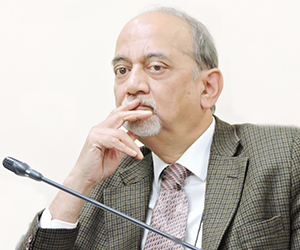

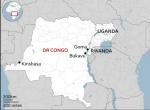
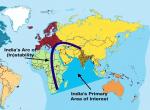

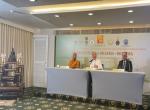
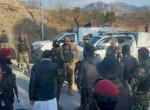

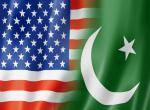
Post new comment